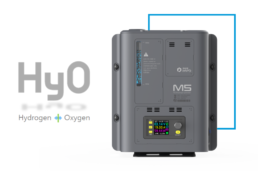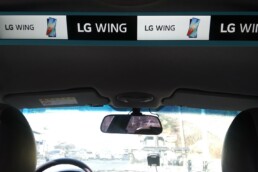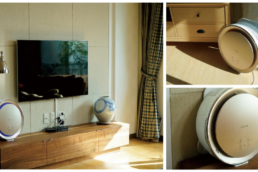Companies in Korea for many years have had a bad reputation as being too old school and traditional. Old school means a working environment that overworks employees has few benefits and has a hierarchy system that restricts creativity and outside-the-box thinking. This is why Samsung, Hyundai, and LG are losing to other global giants such as Apple and Tesla. Korean companies can learn much from Silicon Valley as they put employees first. They realize that employees want to work in an environment that encourages fun, which will help them be more productive. Skilled tech workers are in such high demand that it has become a worker’s market. The competition for these tech workers is intense, and Korea is far behind in its employment packages.
Many companies in Korea can not hold on to their workers for more than three years. This is because many of these Korean conglomerates’ retention rate is so low. Suppose Korean companies want to compete with Silicon Valley to bring in the best programmers, software engineers, and tech specialists and keep them. In that case, they will have to overhaul their working environment completely. Here are the top 10 employee perks companies in Korea need to adopt from Silicon Valley.
10 Employee Perks Companies in Korea Should Adopt
10. Nap Areas

Nap Areas or Rest Areas are a must for any company. These areas do not have to have a bed; they can be pods or even isolated couches. The important factor is that it can be a place for workers to get a quick nap. Workers are shown to be more productive after a power nap. A company losing 30-40 minutes of worker productivity will be worth it in the long run since workers will have more energy and focus. Companies in Korea overwork their employees as it is; why not allow them to have a reboot after lunch? A well-rested employee will be a more productive employee in the long run.
9. Exercise Rooms/Free Gym Memberships
 This is a bit similar to perk #10. It is all about keeping employees productive. A stationary bike or a weight set at work can go a long way in keeping workers healthy and refreshed. If companies do not have that kind of space at the office, why not pay for your employee’s gym membership? Workers will not only be incentivized to stay at the company, but it will help them improve their health overall.
This is a bit similar to perk #10. It is all about keeping employees productive. A stationary bike or a weight set at work can go a long way in keeping workers healthy and refreshed. If companies do not have that kind of space at the office, why not pay for your employee’s gym membership? Workers will not only be incentivized to stay at the company, but it will help them improve their health overall.
8. Company Retreats

Some companies in Korea already make company retreats but rarely go outside Korea. They mainly go to a pension just outside of Seoul for a 1-2 day retreat. There is no better way to build teamwork than going on a retreat abroad with your employees. Bonds get formed, which in turn will lead to a better working environment. The most recommended would be to go to a global conference. This will help the team learn more about a particular market and give them a chance to expand its global network.
7. Game Rooms
 Most companies in Silicon Valley have some game room. Koreans love gaming, so having some stimulating gaming devices around the office makes sense. It is good to let your employees know they can take a break from their work and focus on something unrelated to work. The game room can be a place to play video games or watch T.V. and play physical games such as Ping Pong, Pool, foosball, or even screen golf. The whole point of a Game Room is to show employees that a work/life balance is important to the company.
Most companies in Silicon Valley have some game room. Koreans love gaming, so having some stimulating gaming devices around the office makes sense. It is good to let your employees know they can take a break from their work and focus on something unrelated to work. The game room can be a place to play video games or watch T.V. and play physical games such as Ping Pong, Pool, foosball, or even screen golf. The whole point of a Game Room is to show employees that a work/life balance is important to the company.
6. Vacation Cash

Some innovative startups are looking into unlimited vacation days. This will never happen in Korea, but “Vacation Cash” could be something Korean companies can consider incorporating into their company. This will show employees that the company cares and will build loyalty with them. Also, it will benefit the company if the employee returns from their vacation feeling refreshed and motivated to work harder for the company.
5. Transportation Allowance
 In Korea, only senior management gets company cars and free parking. Many have to commute to work in Korea by bus, taxi, subway, or vehicle. Why not provide an allowance for transportation to show workers that you want to help them get to work as safely and as easily as possible? Doing this will ensure workers get to work on time since they have many transportation options. In addition, companies will have access to a larger pool of talent since the company covers transportation costs.
In Korea, only senior management gets company cars and free parking. Many have to commute to work in Korea by bus, taxi, subway, or vehicle. Why not provide an allowance for transportation to show workers that you want to help them get to work as safely and as easily as possible? Doing this will ensure workers get to work on time since they have many transportation options. In addition, companies will have access to a larger pool of talent since the company covers transportation costs.
4. Interest-Free Loans
 The idea itself might sound strange for big companies with the cash flow to make these loans. However, if workers take an interest-free loan from the company, they will have a lot more loyalty to stick with it for the long term.
The idea itself might sound strange for big companies with the cash flow to make these loans. However, if workers take an interest-free loan from the company, they will have a lot more loyalty to stick with it for the long term.
3. Free Lunches
 Companies in Silicon Valley are known for having cafeterias. Most companies in Korea do not have the space for their cafeteria, so why not have their workers eat wherever they want and reimburse them? This would be a huge perk the company can provide and save workers a lot of money in the long run. A monthly company card of 500,000 won a month would attract much interest in the company.
Companies in Silicon Valley are known for having cafeterias. Most companies in Korea do not have the space for their cafeteria, so why not have their workers eat wherever they want and reimburse them? This would be a huge perk the company can provide and save workers a lot of money in the long run. A monthly company card of 500,000 won a month would attract much interest in the company.
2. Education Reimbursement
 Paying for your worker’s education will improve the company’s assets. Companies like to invest in the company, and employees are a part of any company. Allowing employees to take classes online or offline will improve their skills and would be a win-win for both parties. A more educated workforce means a more productive workforce. This is also a great way for companies to keep up with the latest trends in technology. Need an AWS solutions architect? Why hire one when you can pay an employee to get the certification?
Paying for your worker’s education will improve the company’s assets. Companies like to invest in the company, and employees are a part of any company. Allowing employees to take classes online or offline will improve their skills and would be a win-win for both parties. A more educated workforce means a more productive workforce. This is also a great way for companies to keep up with the latest trends in technology. Need an AWS solutions architect? Why hire one when you can pay an employee to get the certification?
1. Flexible Schedules

Korean companies have been notorious for being strict regarding working hours. You must get in on time or, better yet, an hour early. You can forget about leaving on time, which will be considered as not having enough work. A flexible schedule will show trust in your employees to make their own decisions. Some work better in the morning, and some work better at night. Some might work better on the weekend as fewer people will be in the office. Giving employees the power to make their shifts will produce better performance.
John
John is the Co-Founder of Seoulz. He has covered the Korean startup & tech scene for over eight years and has written over 700 articles regarding the Korean startup ecosystem. He has brought global attention to Korea's tech scene using Google SEO. Email him at john@seoulz.com
Related Posts
Animation Startups in Korea – Studios to Production Companies
February 19, 2024
Top 10 Mobile Gaming Companies in South Korea
January 1, 2023






